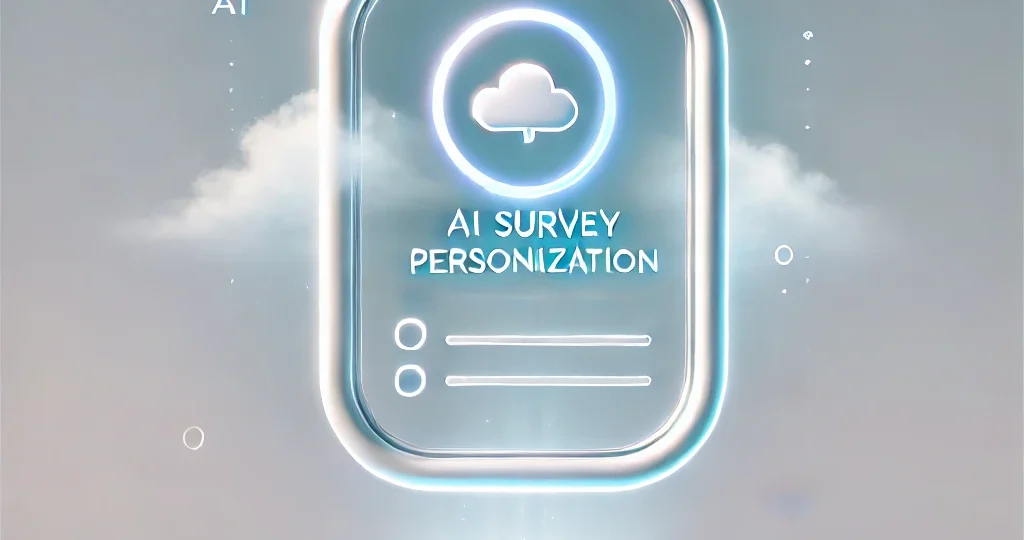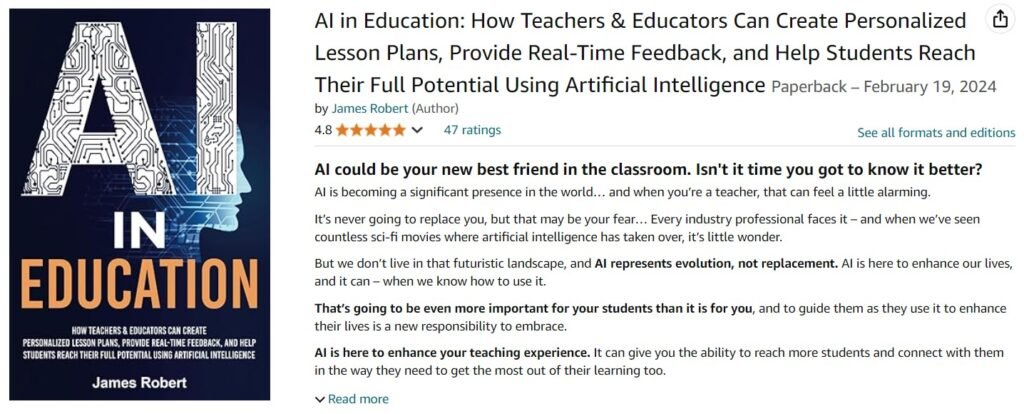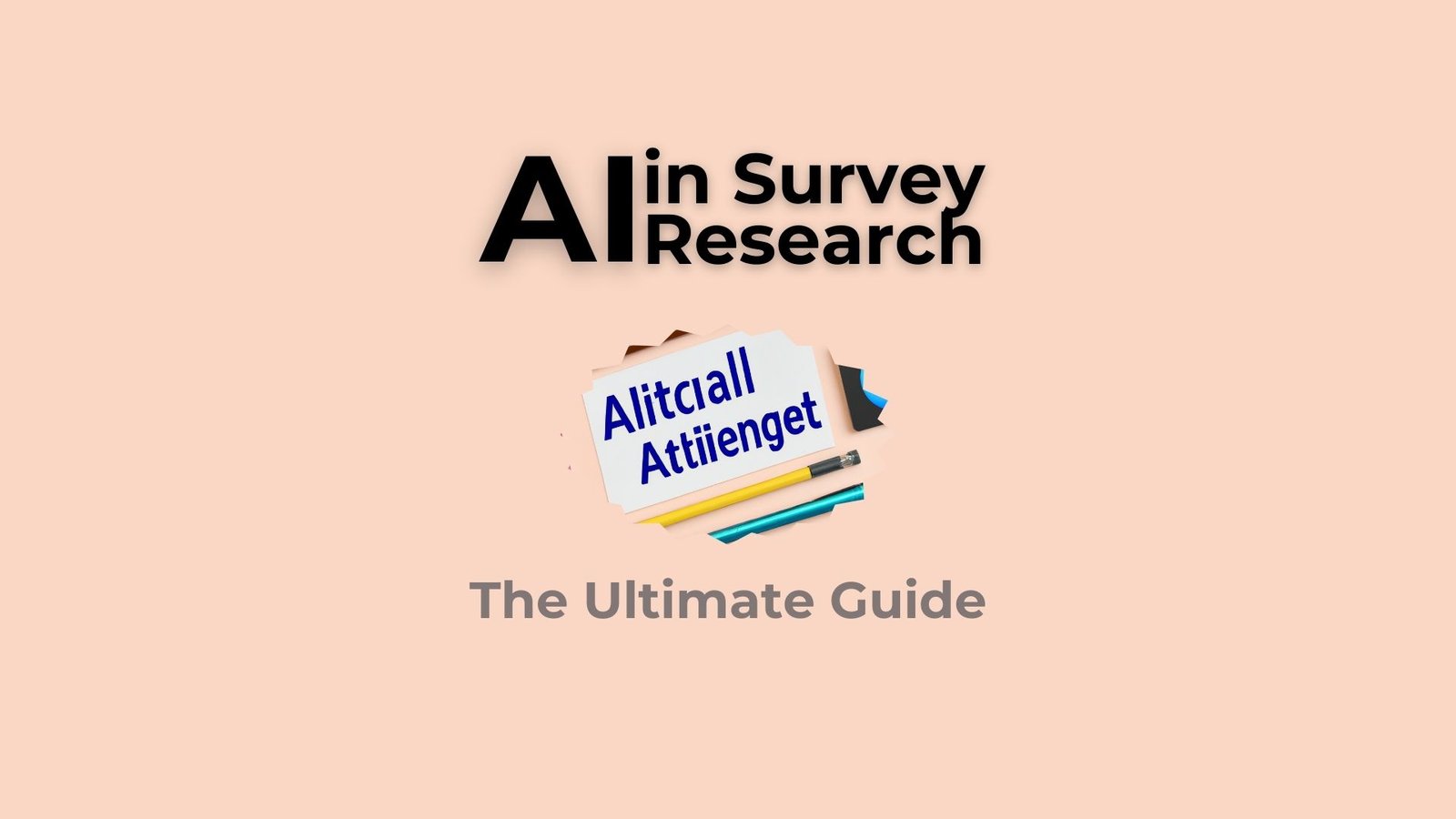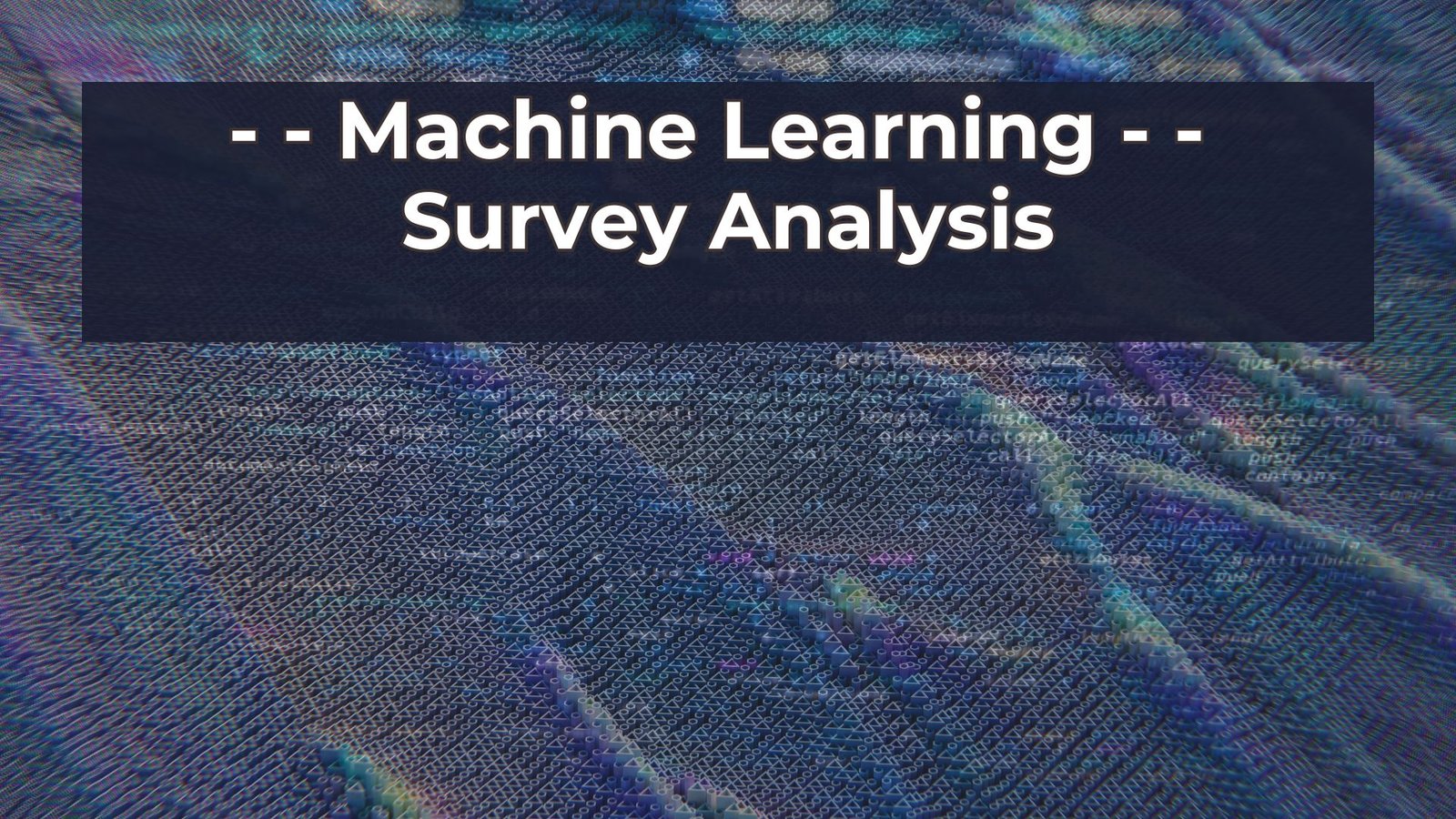How AI Survey Personalization is Revolutionizing Market Research Now
September 20, 2024 | by Jean Twizeyimana

Picture having a survey that will be unique for you and only you. Well, guess what? We are living in it! AI survey personalization is not a buzzword. It is changing market research as we know it. A recent study by Gartner found that AI in surveys boosted response rates by 25%!
But what exactly is AI survey personalization, and why should you care? Buckle up! We’re about to dive into a game-changing tech that’s making waves in 2024!
What is AI Survey Personalization?
AI survey personalization is like a personal assistant. It is too smart to ask you unwanted questions or to phrase them in a confusing way. Here, one can use AI to design surveys for respondents. Such are not the days of standardized questionnaires! AI uses info from the respondent and their past activities to design a survey. This may mean changing the question order, wording, or omitting some questions. The result? You may get the impression that we have chosen you for this survey.
The key technologies driving this revolution include:
- Machine learning algorithms that are used to predict the preferences of a user
- Natural Language Processing (NLP) for analyzing and synthesizing the text in a human like way
- Such learning algorithms which can on-the-job alteration based on the feedback received.
This is in sharp contrast to conventional survey methods which have been used in the past. While the traditional surveys are two-dimensional and can’t change, the AI surveys are multi-dimensional and very interactive.
The Benefits of AI-Powered Survey Personalization
You may be wondering: ‘But what is the prospect?’ There is no prospect! That is the only point of sore that I can come across. Using the system may provide some advantages as follows:
- Skyrocketing Response Rates: Thus, it is possible to notice that when surveys are interesting and related to a particular user, the user will complete them. It’s that simple!
- Better Data Quality: It is for this reason that through the use of personalized surveys, one is likely to get better and more thoughtful responses. No more hurrying through questions that do not even have anything to do with the topic at hand!
- Enhanced User Experience: We all know the fact that nobody wants to answer the mundane surveys. AI can streamlines and enhance the experience of the participants.
- Real-Time Adaptability: AI can change the course of the questions depending on the previous answers: explore more details of certain topics and avoid unnecessary ones.
- Cost-Effective Research: Completion rates are higher and data is better with higher completion rates which means more value for your money.
Techniques Used in AI Survey Personalization
Let’s get a bit techy for a moment and explore the cool AI techniques making all this possible:
- Natural Language Processing (NLP): This is in formulating questions that sound natural rather than it being a direct and straight questioning.
- Machine Learning: Provides recommendations of which questions should be asked to every respondent.
- Sentiment Analysis: Determines the mood or reactions given in the responses to change the survey’s nature in a given instance.
- Adaptive Questioning: Modifies the sequence of the questions depending on the response that the person has provided.
Real-World Applications of AI Survey Personalization
Enough of the theory let’s find out where this technology is actually having an impact:
- E-commerce: Imagine instance of a product feedback survey that has questions on the products you have purchased. Isn’t that what we call AI Personalization?
- Healthcare: It includes feedback forms that may be used for any treatment given to the patients thus making it more effective.
- Education: Course wise feedback forms filled by the students and the assessment done on the basis of learning style of the students.
- Market Research: The ones that may ask further questions regarding your consumer behavior and your preferences.
- Employee Engagement: Employment questionnaires on aspects of work that are most relevant to the employee’s position in the workplace.
Overcoming Challenges in AI Survey Personalization
Of course, the way is not always easy and smooth, and there are always some obstacles on the way. There are some hurdles to overcome, but there are certain challenges.
- Privacy Concerns: It is often said that information is power and this is very true especially in today’s society. However, what one gets with power is the fact that they have to be answerable for their actions. The data have to be protected.
- Fairness and Bias: It is thus necessary to create AI algorithms in a manner that does not contribute to the prejudice and/or inequality in the results to be obtained.
- Balancing Act: It can be difficult to attain the same results while trying to meet the clients’ needs and using templates.
- Data Limitations: There is, nonetheless, a challenge in training the artificial intelligence models when there is limited or even lack of data especially the historical data.
- Integration Issues: Bringing AI personalization into current survey tools is not always a piece of cake.
Best Practices for Implementing AI Survey Personalization
Feel like jumping on the bandwagon with the many companies that have started AI surveys? Here are some tips to get you started:
- The following are guideline for developing research proposal – First, one should define research objectives. It is very important to know what you are out for and what you intend to achieve from it!
- Choose the best tools and platforms of artificial intelligence for your purpose.
- Introduce personalization features gradually. It is not a one day job!
- It is important that you keep on iterating and improving on your AI models. It’s a learning process.
- Remember, that AI is just the tool that assists in increasing the effectiveness of human, but it will never be the human itself. Use it wisely!
The Future of AI in Survey Research
The future is looking bright and we are going to have the roof blown off. Here’s what we might see:
- Predictive analytics designing surveys before you even know that you need them.
- The following are some of the examples of survey research conducted through virtual assistants and chatbots which are conversational in nature.
- Collecting real time data of the organization from IoT devices. Your fridge may soon be voice enabled and could be requesting for your food options!
- In this context, the feedback experiences were delivered by Gaussian and virtual reality questionnaires.
- Ethical concern that should be taken care of in the development of AI so that the study does not have prejudice.
Conclusion
It is great to walk through the process of creating AI survey personalization. We have learned how this fantastic tool is revolutionizing the market research, increasing the response rates and offering a more profound vision of the audiences. As we look to the future, one thing is clear: Surveying is a branch that has integrated the artificial intelligence and it is growing day by day.
Alright, what do you do next? If you have been doing research for some time now or you are new to the world of surveys, this is the right time to leverage on AI personalization. It’s all about starting small and trying out, and you will see that your surveys will become relevant and engaging. And this is where market research comes into play: personalization is no longer a ‘nice to have’ but a ‘must have’!
Are you willing to level up the way you conduct your surveys? The future of personalized research is calling and let me tell you; you don’t want to miss this call!
For a full overview of AI in survey research, you can check our article, “The Ultimate Guide to AI in Survey Research.“
Here are other popular AI tools that are making waves in the research community:
- Iris.ai: An AI science assistant that helps with literature exploration and summarization.
- SciSpace: Offers AI-powered literature search and paper summaries.
- Elicit An AI research assistant who can help formulate research questions and find relevant papers.
- Semantic Scholar: Uses AI to help you discover and understand scientific literature.
Related Articles
- Exploring The AI Qualitative Data Analysis in Surveys Now
- Revolutionize Your Research: Machine Learning Survey Analysis in 2024
- Latest AI in Survey Research: From Design to Analysis
- The Ultimate Guide to AI in Survey Research
- The Latest AI Sentiment Analysis Techniques for Survey Responses
- How To Overcome Survey Data Bias Using AI
- How To Leverage Natural Language Processing (NLP) for Open-Ended Survey Questions
AI and Machine Learning Tools
- Hands-On Machine Learning with Scikit-Learn, Keras, and TensorFlow
- Artificial Intelligence: A Guide for Thinking Humans


Try AI Tools in Your Research:
1. SciSpace (for Literature Reviews)
- Monthly Subscription: Get 20% off with the code
JEAN20Try SciSpace - Annual Subscription: Get 40% off with the code
JEAN40Try SciSpace
2. Elicit (for Formulating Research Questions and Finding Relevant Papers)
RELATED POSTS
View all











![MOUNT-IT! Sit Stand Monitor Desk Mount [Fits 32" Screens] Height Adjustable, Full-Motion Articulating Arm with Keyboard Tray and Cable Management (Black)](https://jeantwizeyimana.com/wp-content/uploads/2024/09/Sit-Stand-Monitor-Desk-Mount-Height-Adjustable-Full-Motion.jpg)



